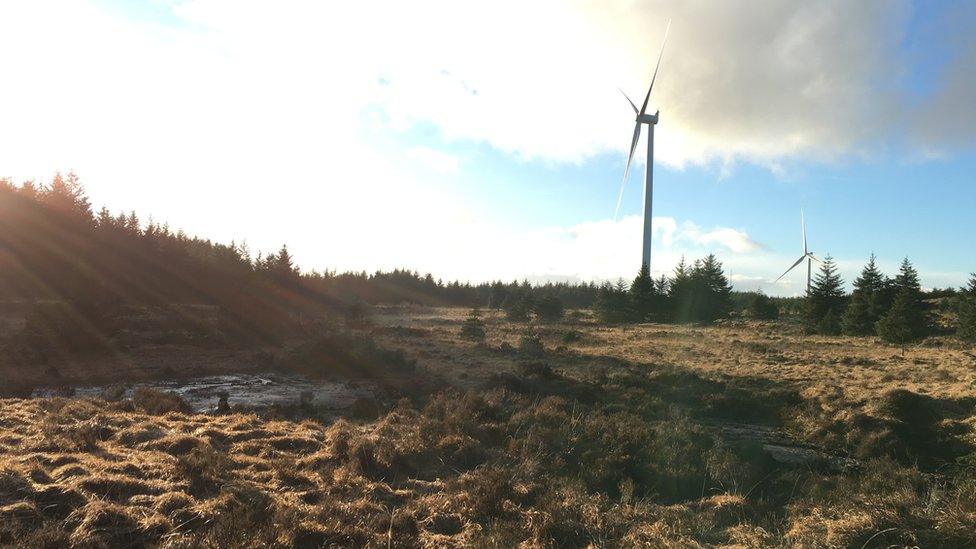Climate change 'puts Welsh historic environments at risk'
- Published
- comments
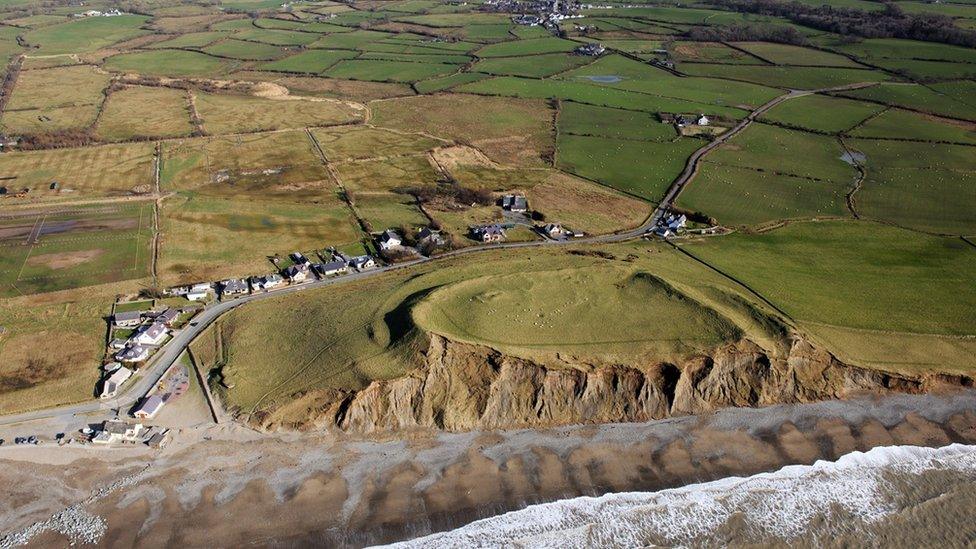
This Iron Age hill fort in Gwynedd is slowly crumbling into the sea
Wildfires, drought, flooding and rising sea levels are putting historic monuments, buildings and environments in Wales at risk, experts have said.
The warning has come from a group set up to examine the effect of climate change on historic locations in Wales.
The Historic Environment Group said policy makers and landowners must develop new ways to tackle the threats.
The Welsh Government said there needed to be a "re-think" on managing historic environments.
"Many of those managing important historic sites and landscapes are already thinking deeply about climate change and its implications on their work," said Jill Bullen, from the environment group, which is being led by Welsh heritage body Cadw.
"We have tried to learn from their expertise and share their experience and lessons learned more widely."
Their report, external highlights several cases, where they say the action of climate change has had a profound impact on historic environments.
At Dinas Dinlle near Caernarfon, in Gwynedd, a prehistoric hill fort dating to the Iron Age has witnessed the loss of 50m of cliff face - some 164ft - since 1900, due to coastal erosion.
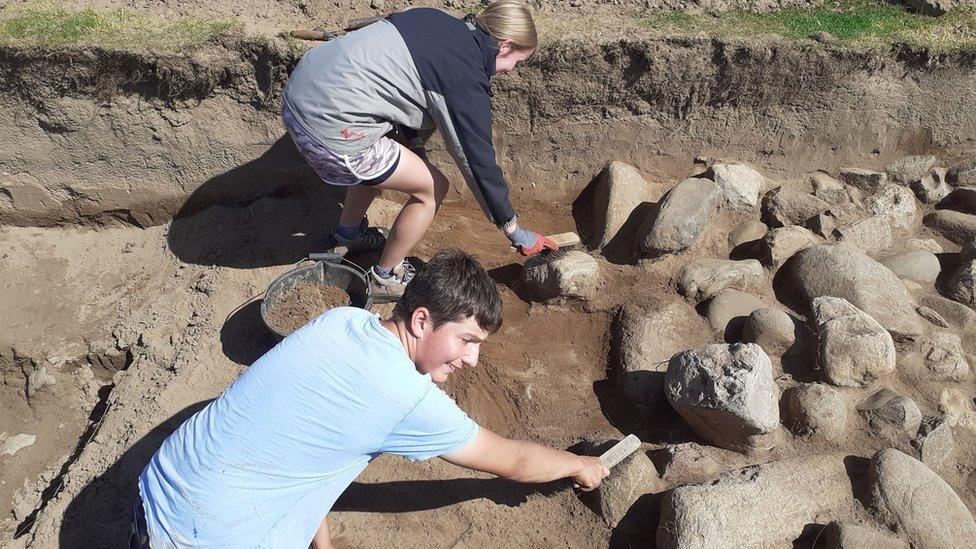
Last year experts uncovered a roundhouse at the 125-acre Dinas Dinlle site
Last year archaeologists discovered a massive roundhouse there, thought to be up to 2,500 years old.
It had been buried in coastal sand, thought to have been blown in by storms 700 years ago.
But it is a race against time to learn about all that can be found at Dinas Dinlle.
Owned by the National Trust, a decision has been taken to accept areas of the hill fort will be lost to the sea and erosion forever.
The report by the environment group also highlights how warmer weather - including the drought of 2018 - has hit vital landscapes such as Waun Fignen Felen in Powys, about five miles north of Ystradgynlais.
The stone age settlement sits on an important blanket bog and upland bog, which are significant for biodiversity - and also for research into prehistoric Wales.
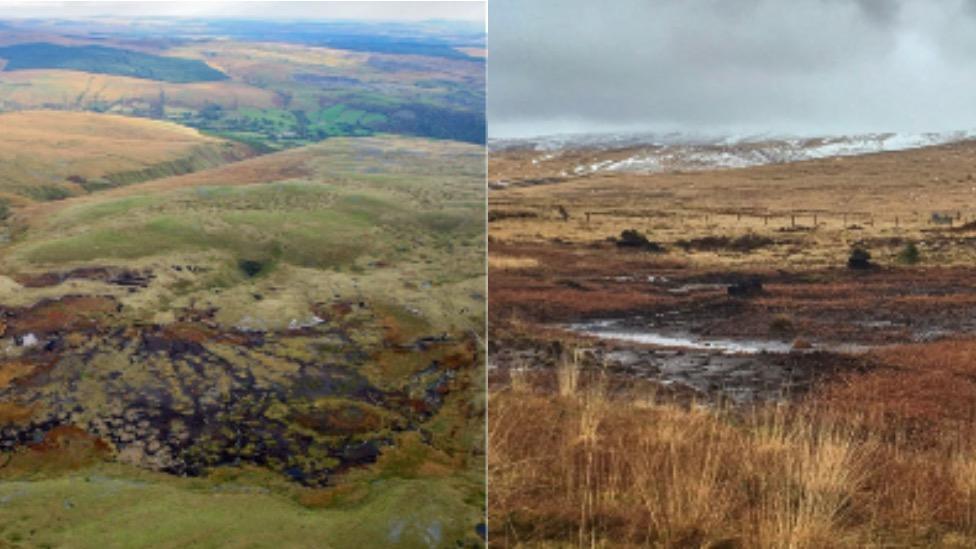
A project to restore peat bog at Waun Fignen Felen is under way
However, the bogs have been drying out, leading to erosion of peat.
The Brecon Beacons National Park and a management forum are now working to restore the bogs and improve the water table in the area.
In his foreword to the report, the Welsh Government's deputy minister for culture, Lord Elis-Thomas said he recognised the historic environment was "constantly changing and evolving through natural processes and human interventions".
"We are now facing the greatest challenge of all from climate change. And we need to respond now to the consequences that we know are coming for the people of Wales, our communities and places," he added.
- Published20 September 2019
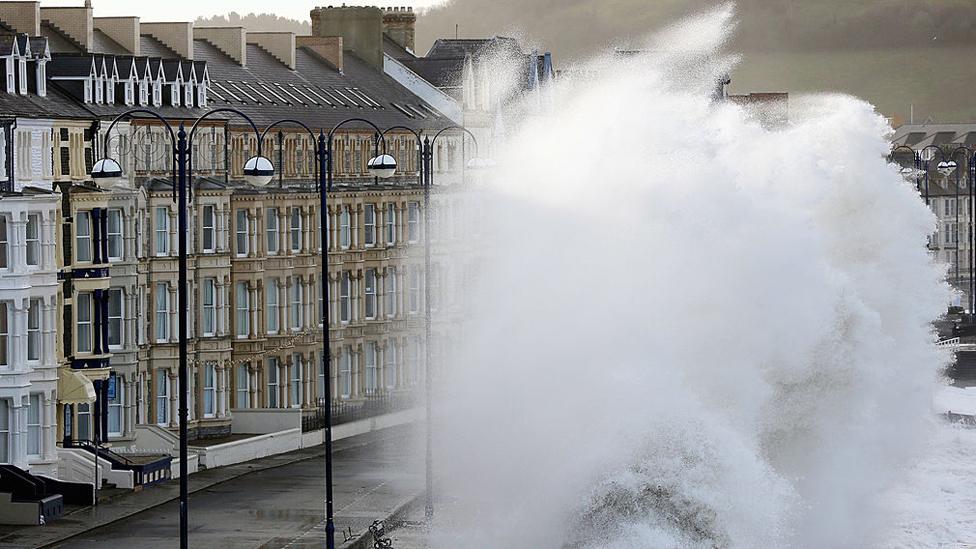
- Published20 August 2019
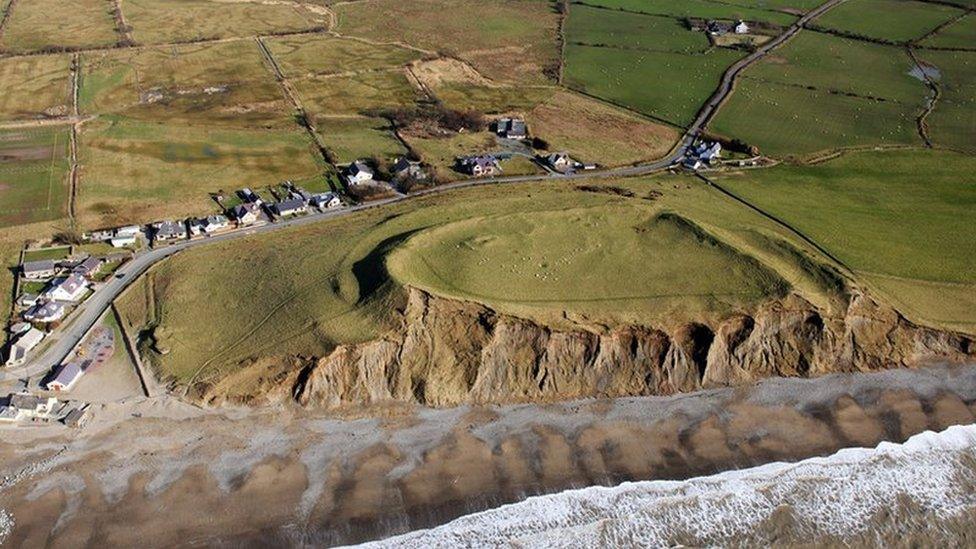
- Published7 September 2019
